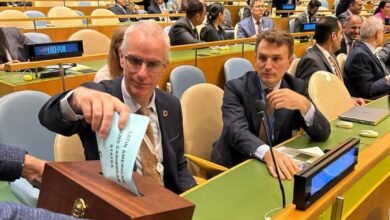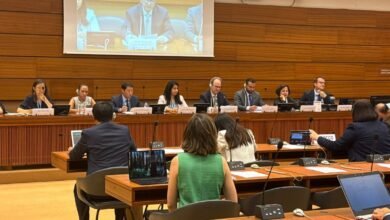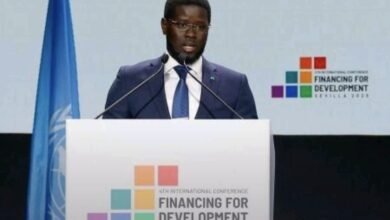From Rabat to Madrid: United Against Racism and Hate

By the Coalition for Human Rights and Anti-Discrimination Advocacy
A transnational wave of xenophobia is escalating on both sides of the Mediterranean, prompting a powerful joint statement from a coalition of human rights organizations in Morocco and Spain. The communiqué denounces the surge in hate speech and racially motivated violence targeting Sub-Saharan African migrants in Morocco and Moroccan nationals in Spain. In both contexts, the rhetoric of exclusion is becoming normalized—threatening not only the safety of individuals, but the very fabric of pluralistic societies.

In Morocco, social media platforms such as Facebook, Instagram, and TikTok have become breeding grounds for racist and xenophobic content. Disturbingly, a growing number of pages promote narratives that demonize Sub-Saharan migrants, portraying them as a threat to national security and social order. These narratives are often steeped in racial stereotypes and conspiracy theories, including references to the “great replacement”—a concept that reflects a deepening social crisis and a manipulated fear of the “other.” Such discourses perpetuate postcolonial hierarchies, erode the values of hospitality that have long defined Moroccan society, and pave the way for discrimination, exclusion, and violence.
Across the sea in Torre Pacheco, Spain, Moroccan migrants are being targeted in a spate of racially charged attacks. These acts, catalyzed by far-right political rhetoric, are not isolated incidents. They are part of a broader pattern in which North African communities are framed as foreign to the European identity, their presence increasingly racialized and politicized. The violent consequences of such ideologies are a stark reminder of the human cost of unchecked hate.
Though these incidents unfold in different geopolitical contexts, they are linked by a shared logic of “systemic othering”—a dynamic in which minority groups are cast as the source of social, economic, or cultural strain, despite often bearing the brunt of those very challenges. The coalition behind the communiqué insists that incitement to hatred and discrimination on the basis of origin, nationality, or skin color is a flagrant violation of fundamental human rights. These rights are safeguarded not only by international legal instruments, such as the International Convention on the Elimination of All Forms of Racial Discrimination, but also by the constitutions of both Morocco and Spain.
The organizations affirm that hate speech cannot be tolerated under the guise of freedom of expression. It is a gateway to physical, psychological, and institutional violence—and must be confronted through rigorous, systemic measures. To resist this tide, it is essential to dismantle fear-driven narratives and elevate alternative stories of solidarity, shared memory, and historic coexistence between the peoples of North and Sub-Saharan Africa and Europe.
The coalition calls on the Moroccan and Spanish governments to issue firm condemnations of these acts and to strengthen prevention and protection mechanisms against hate crimes. It urges technology companies, especially Meta, to take responsibility for content moderation and act decisively against the proliferation of racist discourse on their platforms. Civil society, the media, educators, and public figures are encouraged to form a united front to defend the principles of tolerance, human dignity, and peaceful coexistence. Journalists, artists, and teachers are invited to reimagine collective narratives—centering the voices of those affected by racism and highlighting migrant stories as integral to the social and cultural life of their communities.
As a concrete measure, the coalition proposes the creation of a joint Moroccan-Spanish platform to document hate speech, monitor emerging trends, and respond quickly to rising threats. This transnational mechanism would serve as both an alert system and a tool of resistance—bridging two shores in defense of shared values.
In the face of rising systemic racism and intercommunal violence, the response must be collective, cross-border, and anchored in the universal principles of human rights. From Rabat to Madrid, the message is clear: hatred has no place in our societies.





